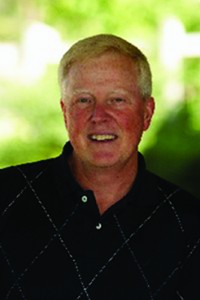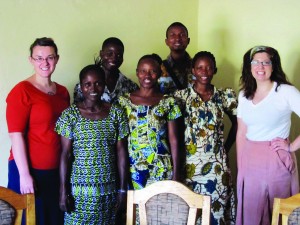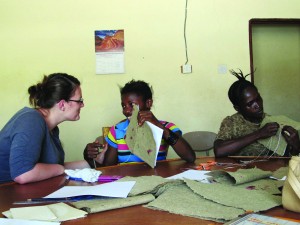In hopes of expanding Houghton’s education opportunities, Scott McClelland has been hired as Dean of Extension Studies. McClelland will have an office in Buffalo and will be primarily located there when the adult education program is launched. In addition, he will be traveling back and forth to Houghton in order to work with faculty in exploring the college’s options for a potential online program for students who want a Houghton education but are not able to attend on campus.

Mark Hijleh, Associate Academic Dean said that “as Houghton considers how we will translate our mission of providing access to high-quality Christian Liberal Arts to students from diverse backgrounds, we need to expand the entry points to what we have to offer.”
Recently Houghton has had to make cuts in the areas of faculty, staff, and athletics. This leaves many wondering why a full time position is needed for this job. Academic Dean Linda Mills-Woolsey explained, “One of our current initiatives aimed at strengthening Houghton’s ability to serve a diverse range of students while creating a sustainable economy for all areas of the college is expanding our arena of vision and service.” Mills-Woolsey also stated, “to be a viable college for the current age we need to explore more ways to use online options to provide flexible access to Houghton College programs. In order to move forward we need someone to manage all our extension study endeavors.”
McClelland will be moving from southern Florida to Buffalo on October 7th in order to work with the Houghton City Semester program which is already underway.“Houghton is exploring how to best make its top tier education available to a wider group of students than it has traditionally,” said Dr. McClelland “So my work will be to explore several options to do this within the Adult Education, online and by offering some new teaching opportunities in Buffalo.”
McClelland has experience in extension studies from his time as the Director of the San Francisco Urban Program based out of Westmont College. He then gained more experience at Trinity College. “My experience with Westmont and Trinity allows me to know how special it is when a campus wishes to reach out to meet the needs of ‘non-traditional’ students by working through many delivery systems now available to higher education institutions like ours,” said McClelland.
Students currently attending Houghton could also benefit from the online program. Junior Glenn Hampson said “I’m thrilled that Houghton is looking into expanding their online education programs. I’m graduating this year, and although I want to continue my education, I got to start paying off my loans here pretty soon. If I could take classes offered by Houghton online, I would be able to fulfill my academic goals while sticking with the school I love.”
The extension program is seen by many as a crucial next step for Houghton. Mills-Woolsey said, “In the long run we hope that investing in this position will provide benefits not only for our extension programs, but for students on the main campus, as our extension programs provide more visibility and accessibility while contributing revenues to the overall college.”


